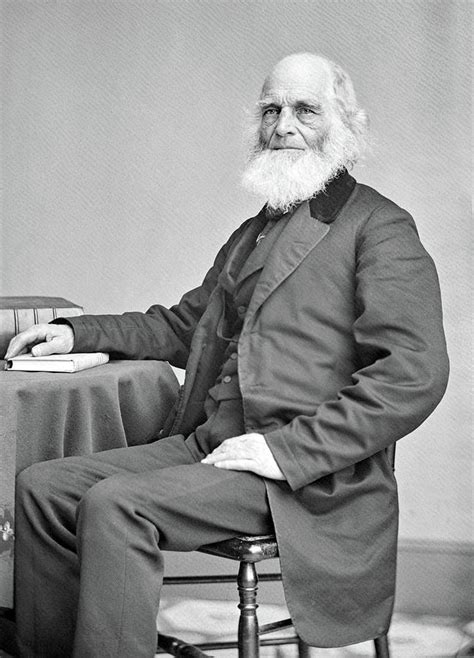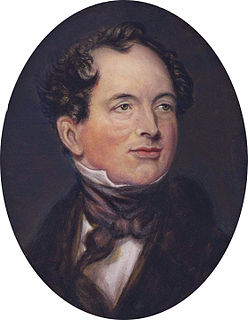A Quote by Rumi
How should Spring bring forth a garden on hard stone? Become earth, that you may grow flowers of many colors. For you have been heart-breaking rock. Once, for the sake of experiment, be earth!
Related Quotes
In the autumn I gathered all my sorrows and buried them in my garden. And when April returned and spring came to wed the earth, there grew in my garden beautiful flowers unlike all other flowers. And my neighbors came to behold them, and they all said to me, "When autumn comes again, at seeding time, will you not give us of the seeds of these flowers that we may have them in our gardens?"
But although the attractive virtue of the earth extends upwards, as has been said, so very far, yet if any stone should be at a distance great enough to become sensible compared with the earth's diameter, it is true that on the motion of the earth such a stone would not follow altogether; its own force of resistance would be combined with the attractive force of the earth, and thus it would extricate itself in some degree from the motion of the earth.
Even there, in the mines, underground, I may find a human heart in another convict and murderer by my side, and I may make friends with him, for even there one may live and love and suffer. One may thaw and revive a frozen heart in that convict, one may wait upon him for years, and at last bring up from the dark depths a lofty soul, a feeling, suffering creature; one may bring forth an angel, create a hero! There are so many of them, hundreds of them, and we are all to blame for them. [...] If they drive God from the earth, we shall shelter Him underground.
Back and forth she went each morning by the river, spring arriving once again; foolish, foolish spring, breaking open its tiny buds, and what she couldn’t stand was how—for many years, really—she had been made happy by such a thing. She had not thought she would ever become immune to the beauty of the physical world, but there you were. The river sparkled with the sun that rose, enough that she needed her sunglasses.
Smile O voluptuous coolbreathed earth!
Earth of the slumbering and liquid trees!
Earth of departed sunset! Earth of the mountains misty-topt!
Earth of the vitreous pour of the full moon just tinged with blue!
Earth of shine and dark mottling the tide of the river!
Earth of the limpid gray of clouds brighter and clearer for my sake!
Far-swooping elbowed earth! Rich apple-blossomed earth!
Smile, for your lover comes!
How many people on Earth serve people? And how many people on Earth serve the Earth? The difference in the numbers must be enormous. It would reveal that the Earth is definitely not the primary concern of the human species. This might be fatal both to the Earth and to humanity. Please, leaders of the Earth and the nations, wake up to this potentially fatal disparity.
The country ever has a lagging Spring,
Waiting for May to call its violets forth,
And June its roses-showers and sunshine bring,
Slowly, the deepening verdure o'er the earth;
To put their foliage out, the woods are slack,
And one by one the singing-birds come back.
Within the city's bounds the time of flowers
Comes earlier. Let a mild and sunny day,
Such as full often, for a few bright hours,
Breathes through the sky of March the airs of May,
Shine on our roofs and chase the wintry gloom-
And lo! our borders glow with sudden bloom.
In the case of those solids, whether of earth, or rock, which enclose on all sides and contain crystals, selenites, marcasites, plants and their parts, bones and the shells of animals, and other bodies of this kind which are possessed of a smooth surface, these same bodies had already become hard at the time when the matter of the earth and rock containing them was still fluid. And not only did the earth and rock not produce the bodies contained in them, but they did not even exist as such when those bodies were produced in them.
The garden reconciles human art and wild nature, hard work and deep pleasure, spiritual practice and the material world. It is a magical place because it is not divided. The many divisions and polarizations that terrorize a disenchanted world find peaceful accord among mossy rock walls, rough stone paths, and trimmed bushes. Maybe a garden sometimes seems fragile, for all its earth and labor, because it achieves such an extraordinary delicate balance of nature and human life, naturalness and artificiality. It has its own liminality, its point of balance between great extremes.
A rock or stone is not a subject that, of itself, may interest a philosopher to study; but, when he comes to see the necessity of those hard bodies, in the constitution of this earth, or for the permanency of the land on which we dwell, and when he finds that there are means wisely provided for the renovation of this necessary decaying part, as well as that of every other, he then, with pleasure, contemplates this manifestation of design, and thus connects the mineral system of this earth with that by which the heavenly bodies are made to move perpetually in their orbits.
We are on the cusp of the emergence of a company of hidden men and women who with all faith and patience have been enduring great struggles and dealings, being processed by the Lord and filling up what is lacking in the afflictions of Christ. These are not those who seek a reputation for themselves, their passion is His glory and giving Him the church He has longed for. May God grant us all the heart of apostolic fathering and mothering that can release His power in the earth. Zion is once again in travail to bring forth her children.
The bluebells made such a pool that the earth had become like water, and all the trees and bushes seemed to have grown out of the water. And the sky above seemed to have fallen down on to the earth floor; and I didn’t know if the sky was the earth or the earth was water. I had been turned upside down. I had to hold the rock with my fingernails to stop me falling into the sky of the earth or the water of the sky. But I couldn’t hold on.





































